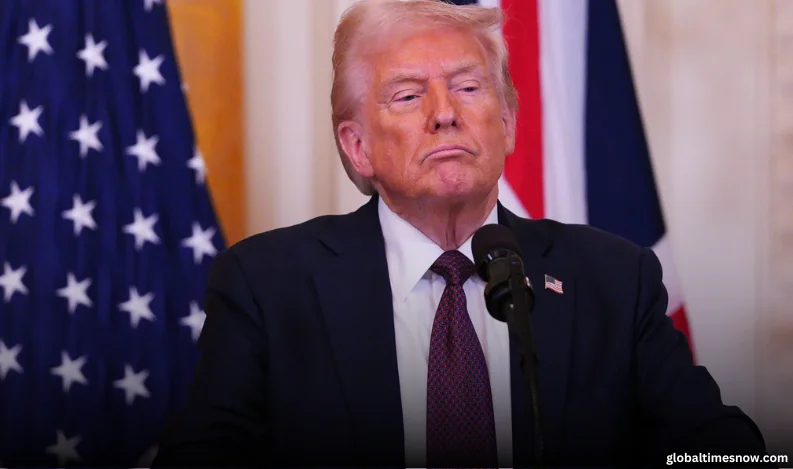Stock markets worldwide witnessed a sharp downturn following US President Donald Trump's latest announcement on tariff hikes. The new levies, set to take effect on imports from Canada, Mexico, and China, have reignited fears of a deepening trade war, sending global financial markets into turmoil.
Trump confirmed on Monday that the 25% tariffs on Canadian and Mexican imports will be implemented as planned, ending a 30-day suspension. Additionally, duties on all Chinese imports will be raised from 10% to 20%, a move the US administration claims is a response to Beijing’s failure to curb fentanyl shipments into America.
Trump's Justification for Tariffs
"They're going to have to face tariffs unless they move their production to the United States," Trump stated at the White House, asserting that these measures will protect American jobs. He dismissed the possibility of reversing the decision, emphasizing that China has not taken "adequate steps" to address illicit drug trafficking.
The tariffs will be enforced starting at 12:01 AM EST on Tuesday, according to an official notice from the Federal Register. The US Customs and Border Protection agency will begin collecting the new levies immediately, with energy imports from Canada being subjected to a 10% duty.
Backlash from Trade Partners
Mexico and Canada swiftly reacted to the US decision. Mexican President Claudia Sheinbaum refrained from an immediate public response but hinted at potential countermeasures during a speech in Colima, saying, "Mexico has to be respected." She indicated her administration has multiple response strategies in place.
Canadian Foreign Minister Mélanie Joly stated that Ottawa is prepared to retaliate but refrained from disclosing specific plans. Ontario Premier Doug Ford warned of severe repercussions, suggesting that Michigan’s auto industry could face shutdowns within a week. "If they want a trade war, we’ll respond in ways they’ve never seen before," Ford asserted, highlighting potential restrictions on nickel exports and electricity transmission to the US.
China, meanwhile, signaled an aggressive response. The state-backed Global Times reported that Beijing is likely to impose tariffs on US agricultural and food products, intensifying trade tensions further.
Market Reaction: Stocks and Currencies Plummet
Trump's tariff announcement sent shockwaves across global markets. The three major US indexes ended the day in steep decline:
-
Dow Jones Industrial Average dropped 649.67 points (-1.48%)
-
S&P 500 lost 104.78 points (-1.76%)
-
Nasdaq Composite fell 497.09 points (-2.64%)
The selloff extended beyond Wall Street, with key Asian and European indices taking a hit. Tokyo’s Nikkei 225 plunged 2.43%, while Hong Kong’s Hang Seng and Australia’s ASX 200 also registered losses. In India, the Nifty 50 is expected to open nearly 1% lower, as investor concerns mount over escalating trade disputes.
Currency markets also reacted negatively, with the Mexican peso and Canadian dollar depreciating against the US dollar.
Industry Impact: Auto Sector in Turmoil
The automobile industry is among the hardest hit, given its deep integration across North America. General Motors, which has major truck production in Mexico, saw its stock fall 4%, while Ford Motors declined 1.7%.
Gustavo Flores-Macias, a public policy professor at Cornell University, warned that US consumers could face immediate price hikes. "With supply chains spanning multiple countries, disruptions will not only lead to production slowdowns but also increase vehicle prices, which could dampen demand," he explained.
Trump’s Push for 'Reciprocal Tariffs'
The latest tariff escalation is part of a broader strategy by Trump to impose "reciprocal tariffs" that match foreign countries' trade barriers. His administration has also revived a probe into digital services taxes and proposed hefty fees for Chinese-built ships entering US ports.
Economists caution that these aggressive measures could keep inflation elevated and potentially push the global economy toward a recession. "Trump’s tariffs on steroids could backfire, increasing costs for American businesses and consumers while fueling economic uncertainty worldwide," said Desmond Lachman, senior fellow at the American Enterprise Institute.
As global markets brace for further volatility, the next move from Canada, Mexico, and China could determine the trajectory of this escalating trade battle.























